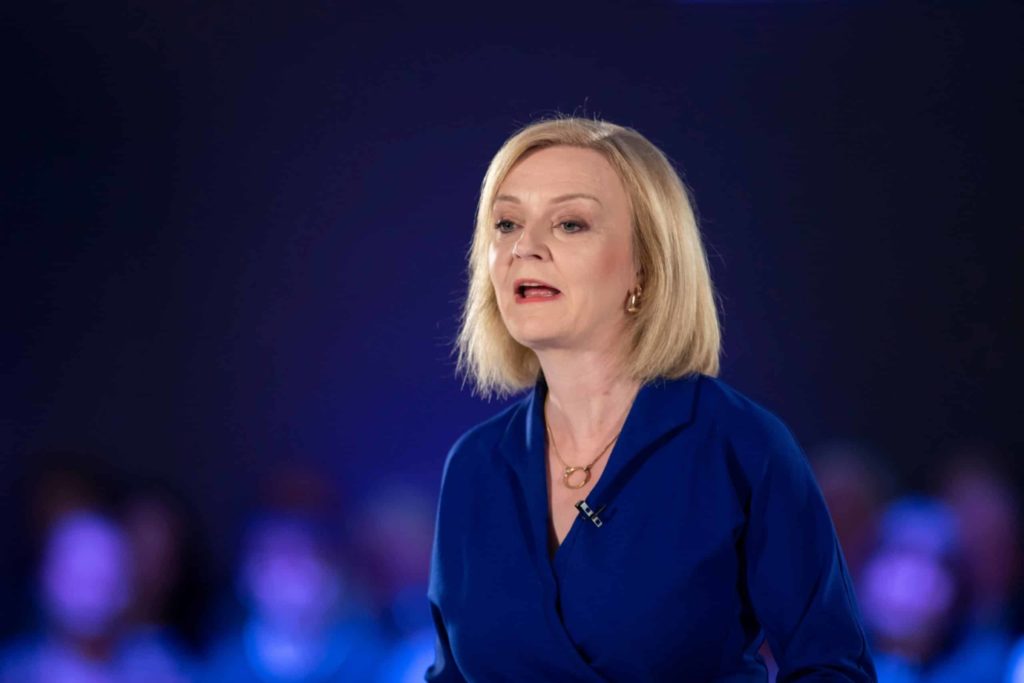Liz Truss has won her party’s leadership contest to replace Boris Johnson as Britain’s Prime Minister.
She’ll become Britain’s third female leader, following Margaret Thatcher who served for almost 12 years in the role from 1979, and Theresa May who served for just shy of three years from July 2016. She’ll also become one of very few women at the top on the world stage, with just 31 countries at present led by female presidents or prime ministers. This includes New Zealand with Jacinda Ardern, Taiwan with Tsai Ing-wen, Bangladesh with Sheikh Hasina, and Ethiopia with Sahle-Work Zewde.
Truss will likewise be the sole female leader on the G7. As of 2020. The collective group comprised of the US, UK, Japan, Germany, Italy, Canada and France accounts for over 50 percent of global net wealth, with members holding significant power in global affairs.
But gaining a position on a world stage still dominated by men, doesn’t automatically mean Truss will seek to progress women’s rights.
Indeed, Truss follows a long tradition in Britain in which all female PMs have been conservatives, and is expected to largely continue the Johnson government approach, including its hostility towards the EU and persistent “war on woke”.
She likewise gained much of the Conservative vote after pledging billions in tax cuts as a way of dealing with the cost of living crisis, conceding that high earners would be the principal beneficiaries.
“Of course, there are some people who don’t pay tax at all,” she told the BBC. “But to look at everything through the lens of redistribution I believe is wrong because what I’m about is about growing the economy and growing the economy benefits everybody.”
However Truss’s economic policies do little to highlight address how women have become the “shock absorbers” for poverty, according to research by the UK Women’s Budget Group.
She has so far avoided highlighting the ongoing impact of the fallout of the pandemic on women, nor the added financial burden placed on women as a result of inflation. She has failed to make any bold announcements on women’s economic security or anything around women’s jobs creation. Back in 2015, she voted against a push to assess how government policies impact women.
While she did once vote to decriminalise abortion, she attracted criticism for failing to speak out on the overturning of Roe V Wade in the United States despite plenty of opportunities to publicly denounce the decision. Critics have noted a pattern of abstention on the issue of abortion.
On early childhood education, experts in the UK are urging Truss to take immediate action or risk a catastrophic collapse of the sector. They’re requesting a commitment to long-term funding, which focuses on the needs of children and values the immense contribution of high-quality and hard-working educators who are currently leaving the profession in droves.
Kevin Courtney, joint general secretary of the National Education Union (NEU), also noted considerable challenges occurring in schools across the country.
“Teacher pay, support staff pay and school funding are all live issues, with the Government’s current pay deal falling far short of what is required. Whoever ends up with the education brief must look again at the case for a fully-funded pay rise which at least matches inflation,” he said.
“The current 5 per cent deal for teachers and 8 per cent for support staff adds up to a further pay cut, on top of more than a decade of real-terms cuts to pay. Teacher recruitment and retention has been in a parlous state for some time, and this must be arrested urgently if we are to protect education services into the future”.
In better news, Truss has pledged to address violence against women and girls, promising to develop a National Domestic Abuse Register to help in identifying and tackling the issue of repeat offenders — although anti-violence campaigners say much more needs to be done to truly address the scourge. Truss has not promised increased funding for frontline services.


